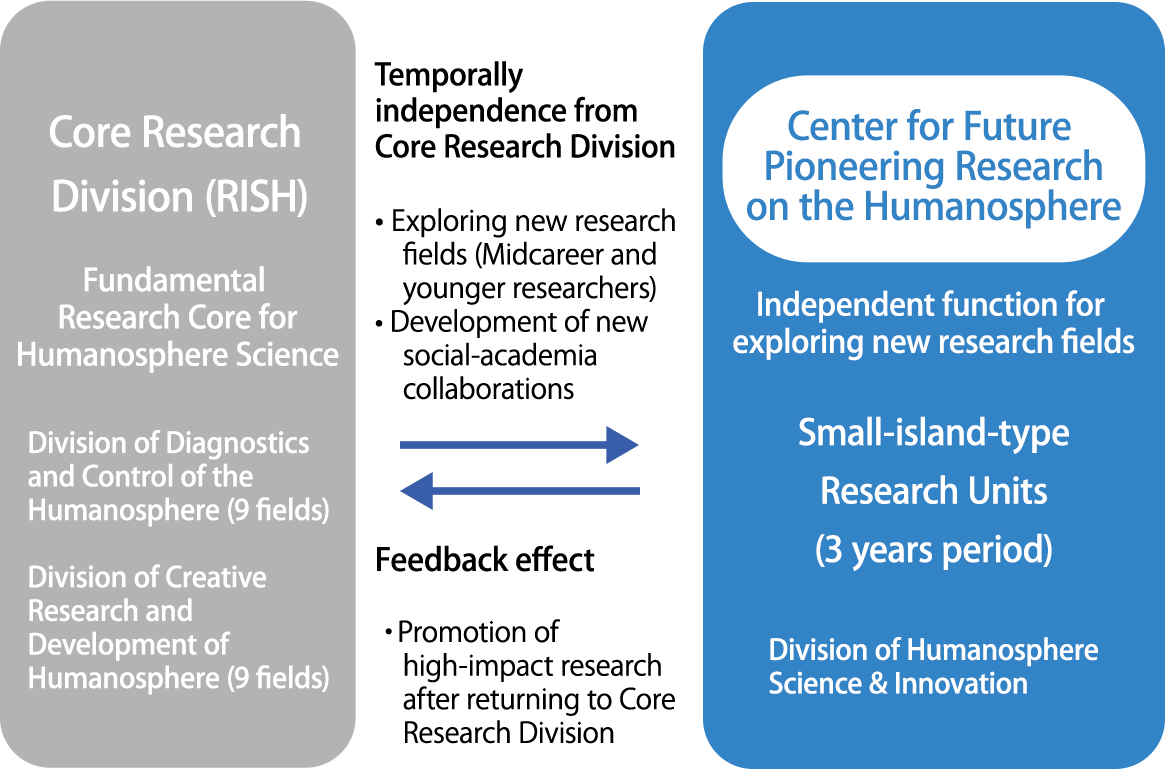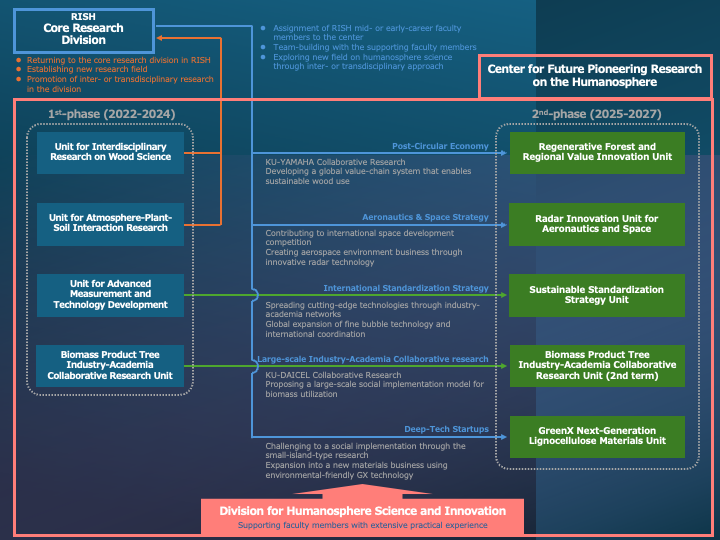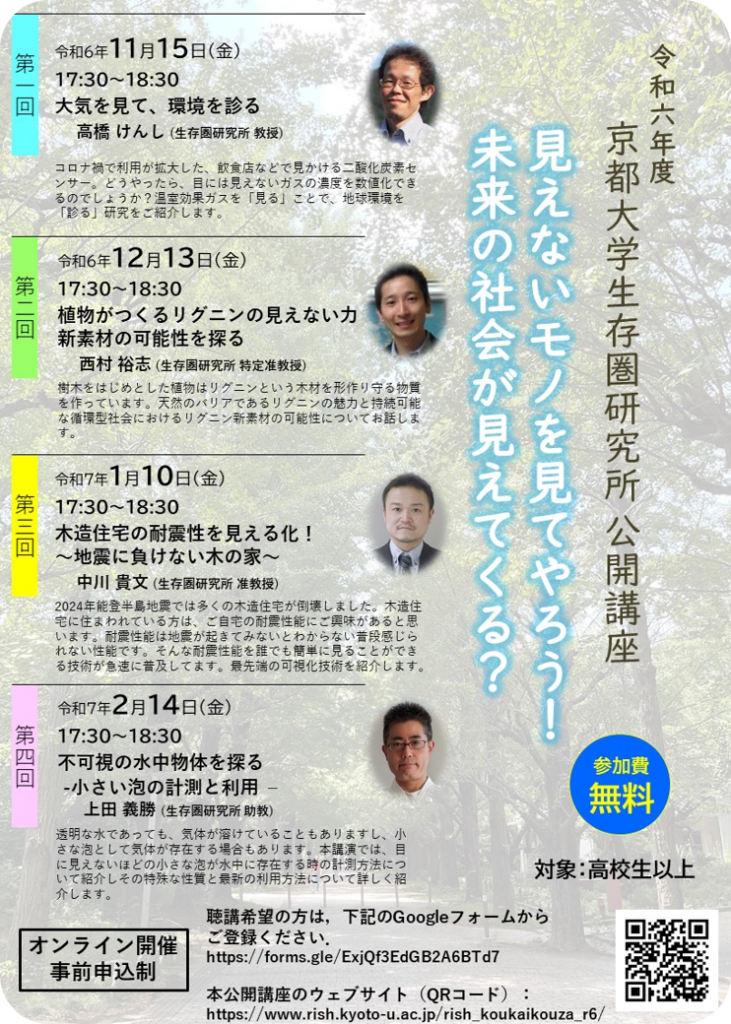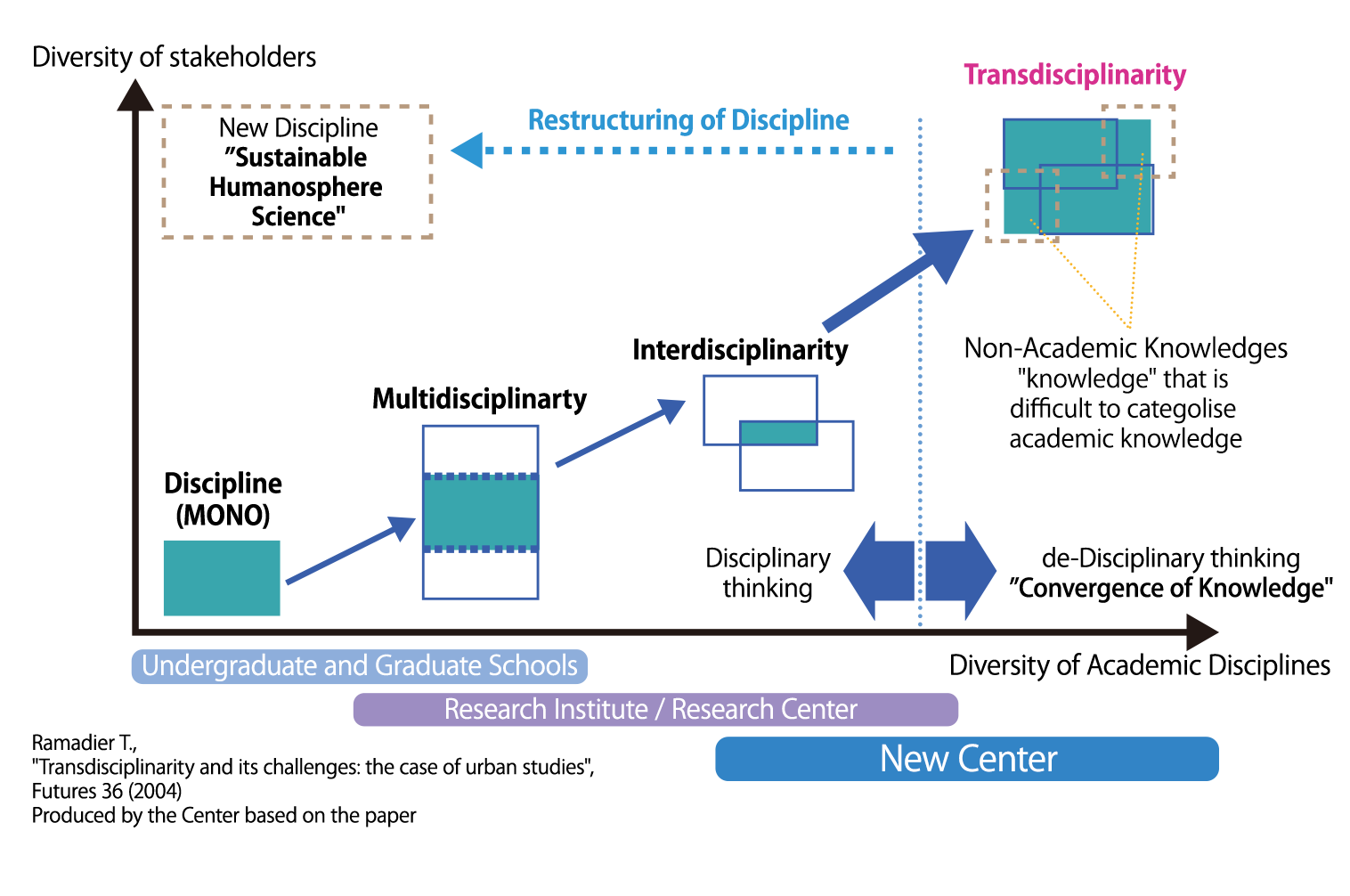Overview
The Center for Future Pioneering Research on the Humanoshere was established in April 2022. The Center aims to develop new research fields utilizing cross-disciplinary and exploratory features, such as the Joint Usage/Research Center of RISH and the construction of effective management systems.
At this center, several candidate research groups (“small island-type research units”) from the Core Research Division attempt to explore new research fields. These research units are not permanent, and we review their activities every three years to promote new units through personnel exchanges with the Core Research Division.
This center places emphasis on the following two activities to achieve this purpose.
The first is cross-disciplinary research, which can provide a wide range of fundamental knowledge in a drastically changing social environment, and the second is effective social collaboration.
With the former, inter- and trans-disciplinarity includes not only interaction between research fields, but also expands to the concept of time symbolized by the “new knowledge of the past”; with the latter, collaboration with a variety of societies in addition to government and industry is also important.
The effective functionalization of these activities will encourage the sustainable development of new research fields and enable the creation of new aspects of Humanosphere science.

Actvities of Small Island-type Research Units
Small island-type research units, which are operated on a three-years period, are one of the key features of the Center for Future Pioneering Research on the Humanosphere.
In the second phase (2025-2027), the five units, “Regenerative Forest and Regional Value Innovation Unit,” “Radar Innovation Unit for Aeronautics and Space,” “Sustainable Standardization Strategy Unit,” “Biomass Product Tree Industry-Academia Collaborative Research Unit (2nd term),” and “GreenX Next-Generation Lignocellulose Materials Unit” are promoting inter- and/or transdisciplinary research.
The “Division for Humanosphere Science and Innovation” established in the center is further strengthening the inter- and/or transdisciplinary approach for humanosphere sciences through team-building of the core research faculty members and the supporting faculty members with extensive practical experiences.

Interaction between the Core Research Dvisions and the Center.
At RISH, various interactions between the Core Research Division and the Center contribute to promote unique researches on the Humanosphere Science.
In addition to the small island-type research units, the mid- and early-career faculty members of the Core Research Division and the Center collaborate to hold public online seminars for academic and non-academic participants. Inter- and/or transdisciplinary topics set as annual themes are broadly discussed across disciplinary boundaries, while following the research fields of faculty members.
In April 2025, thirty faculty members of RISH published a book titled “京大研究からわかるサステナビリティ (Understanding ‘sustainability’ through RISH’s research).” The book provides an easy-to-understand explanation of the concept of ‘Sustainability’ that RISH aims to achieve.

“Understanding ‘Sustainability’ through RISH’s Research” in 2025

Online seminar 2024
Seeing the Unseen: What Will Tomorrow’s Society Look Like?
Direction to promoto the Center functions: Interdisciplinarity and the Humanosphere Science
For our understanding the cross-disciplinarity, we always use the diagram described by Ramadier, which published in the Journal “Futures” in 2004.
It’s easy to understand the multi-disciplinarity and inter-disciplinarity, but the “Convergence of Knowledge” written in the Science, Technology, and Innovation Policy in Japan is the agenda to solve a lot of complex systemic problems clearly means the trans-disciplinarity in our recognitions.
The Center for Future Pioneering Research on the Humanoshere aims to build a systematic research environment for transdisciplinary research.


